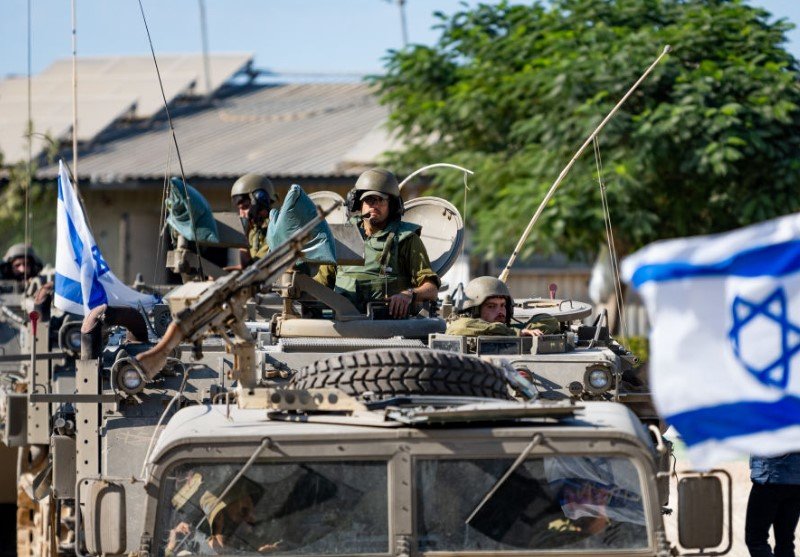Since October 7, 2023, Israel has taken a significant and controversial step in reshaping the Middle East. Under the leadership of its right-wing government, the nation has expanded its military presence and influence in Gaza, the West Bank, Lebanon, and Syria. What started as a response to a Hamas-led attack has evolved into a broader agenda with severe regional implications.
A Shifting Landscape: Israel’s New Borders
Eighteen months after the deadly Hamas assault, Israel’s territorial ambitions have become increasingly clear. No longer simply defending its borders, Israel is now on the offensive, carving out new areas of control. Gaza is once again under military occupation, and the West Bank’s fate is swiftly being sealed with the expansion of settlements and military encampments.
Not content with its southern and central borders, Israel has ventured beyond the usual territories. It has secured what it calls “buffer zones” in Lebanon and Syria. These newly-established zones stretch beyond Israel’s historic borders, creating a buffer between the nation and what it perceives as hostile forces. The Israeli air force has bombed targets in Beirut, while infantry troops are positioned within striking distance of Damascus, a move that signals Israel’s readiness to wage war on multiple fronts.
The High Stakes: Striking Iran and Destabilizing Syria
Israel’s aggressive posture has had a ripple effect across the region. Its military actions have emboldened a series of responses and counteractions from its neighbors, some of which have already been drawn into conflict.

The fall of Bashar al-Assad’s regime in Syria in December 2024 caught many by surprise, but it presented Israel with a new opportunity. With Syria’s regime destabilized, Israel wasted little time in reinforcing its hold over strategic regions, including the Golan Heights, an area Israel has controlled since 1967. Israeli forces worked closely with local Druze communities to consolidate their influence and extend beyond the territory held during previous confrontations.
At the same time, Israel is increasingly turning its attention to Iran, raising fears of an even broader regional conflict. Israel has explicitly threatened to target Iranian nuclear sites, potentially dragging the U.S. into a confrontation. The growing tensions could set off a chain reaction that disrupts the balance of power not just in the Middle East, but globally.
-
Increased airstrikes in Lebanon: Israeli forces have ramped up military pressure on Hezbollah, as Israel’s air force bombards key Hezbollah strongholds in Beirut.
-
Strengthening defense ties with Gulf states: Israel’s growing proximity to the Gulf has resulted in military and diplomatic cooperation, including intelligence sharing and defense collaborations.
An Israel at War: The Shifting Power Dynamics
Israeli Defense Minister, Israel Katz, recently addressed the nation, explaining the government’s rationale for its expansionist agenda. “We will no longer allow radical organizations to exist near Israel’s borders,” Katz stated, underscoring the shift in Israeli policy. The message was clear: Israel is no longer merely reacting to threats; it is proactively dismantling regional groups like Hamas and Hezbollah, which have been framed as existential threats to Israel’s security.
The shifting dynamics on the ground are stark. What was once a defensive war to protect Israel’s borders has morphed into a sustained military campaign with wider geopolitical consequences. The decision to take this route has not only affected Palestine but has stirred conflict with Lebanon, Syria, and even Iran. With Israel now entrenched on multiple fronts, the conflict has turned into a never-ending war, a situation that seems to have no clear end in sight.
The Broader Implications: Global Reactions
International reactions to Israel’s policies have varied. Western allies, especially the United States, have voiced their support for Israel’s right to defend itself, but concerns are growing about the humanitarian impact and the long-term consequences of such aggressive expansionism.
Meanwhile, neighboring Arab nations are on high alert. Though many have been historically at odds with Israel, the reality of an ever-stronger, expansionist Israel has forced nations like Lebanon, Syria, and Iraq to reassess their security strategies. The complex web of alliances, such as the cooperation between Israel and the Gulf States, further complicates matters.
One clear takeaway from Israel’s military actions is the potential for long-lasting instability in the region. The tensions have already spilled over into multiple military fronts, and further escalation is always a possibility. As Israel continues to fortify its positions in Gaza, the West Bank, Lebanon, and Syria, it is uncertain whether the country can maintain control without triggering broader international conflict.
